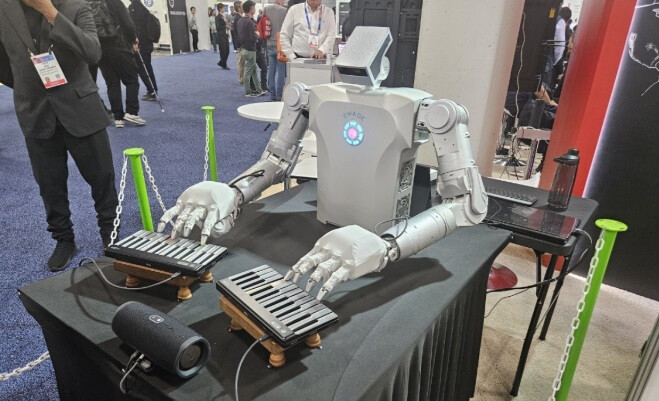
Las Vegas, NV – The Consumer Electronics Show (CES) 2025, which concluded on January 10th, was a showcase of groundbreaking innovations from startups worldwide. The Eureka Park, a dedicated area for startups, saw a surge in participation with over 1,300 small businesses and organizations exhibiting their technologies.
South Korean Startups Dominate Eureka Park
Among the exhibitors, South Korean startups and institutions held a significant presence, accounting for nearly half of the total participants. Backed by major corporations like Samsung, Hyundai, and Posco, as well as local governments and organizations such as KOTRA, South Korean companies made a strong showing.
Samsung's in-house venture program, C-Lab, showcased 15 startups. Green Follow, one such startup, presented a solution that enables ordinary vehicles to become self-driving when connected to a smartphone. The app utilizes the smartphone's camera, sensors, and GPS to track the user's location and guide the connected vehicle autonomously.
Meditrics, founded by Professor Jeon Hong-jin of Samsung Seoul Hospital's Department of Psychiatry, offers a mental healthcare solution combining virtual reality (VR) and various biomonitoring devices. The VR headset, coupled with the device's analysis of brainwaves and heart rate, provides personalized relaxation techniques and therapeutic content.
Dr.Tail, a pet healthcare platform, integrated its AI veterinary consultation service into Samsung's SmartThings platform. Users can monitor their pets' health using Samsung smart devices and receive AI-powered consultations for any detected anomalies.
Whiple, a spin-off from Hanwha Systems, unveiled an AI-powered inspection solution for air taxis. The system allows for rapid inspection of drones simply by placing them on a pad. The portable version won the CES 2025 Innovation Award.
Global Innovations on Display
Startups from around the world showcased equally impressive innovations. Japan's Mihatama introduced an AI-powered coffee machine capable of creating over 1,025 different flavors based on five taste parameters.
Switzerland's Magnes developed smart shoes designed to assist Parkinson's disease patients by providing real-time feedback through vibrations.
France's Molluscan presented a solution that monitors water pollution by attaching sensors to oysters and mussels to track their health.
Robotics was another major theme at CES. France's Pollen Robotics showcased a humanoid robot that could interact with humans, while Singapore's Emesys demonstrated a robot capable of playing the piano.
In Conclusion
CES 2025 underscored the growing influence of startups in shaping the future of technology. With a strong presence from South Korea and a wide range of innovative solutions from around the world, the event highlighted the potential for startups to address global challenges and improve people's lives.
[Copyright (c) Global Economic Times. All Rights Reserved.]






























